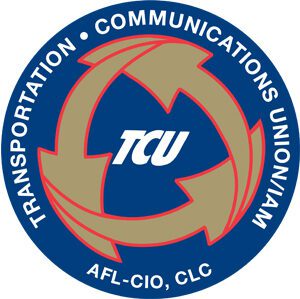The Brotherhood Railway Carmen of America was born on September 9, 1890, in convention at Topeka, Kansas. At that time, repairers made 10 or 15 cents an hour. There was no compensation for injury and there were no pensions and no laws protecting worker rights. The work week was usually seven days, 12 hours a day. There was no overtime. In that year, founder William Ronemus wrote, “Every day we see where monopolies have formed trusts, corporations and have consolidated—then why (should) not the laboring men unite to aid and protect each other?”
In June 1934 railworkers won a victory when President Roosevelt signed legislation strengthening the Railway Labor Act. The amendments established National Adjustment Boards with awards enforceable in court; company unions were outlawed; and a new National Mediation Board was created.
Since then, hard-won victories have continued. In 1986, the Carmen voted to merge with TCU. Members in this craft today are part of TCU’s Carmen Division, which operates under its own Bylaws. The Division President serves on the Executive Council as a Vice President of the full Union. In addition, one of the Division’s top officers is selected at the separate Carmen Convention to serve as a Member of the Union’s Board of Trustees.

